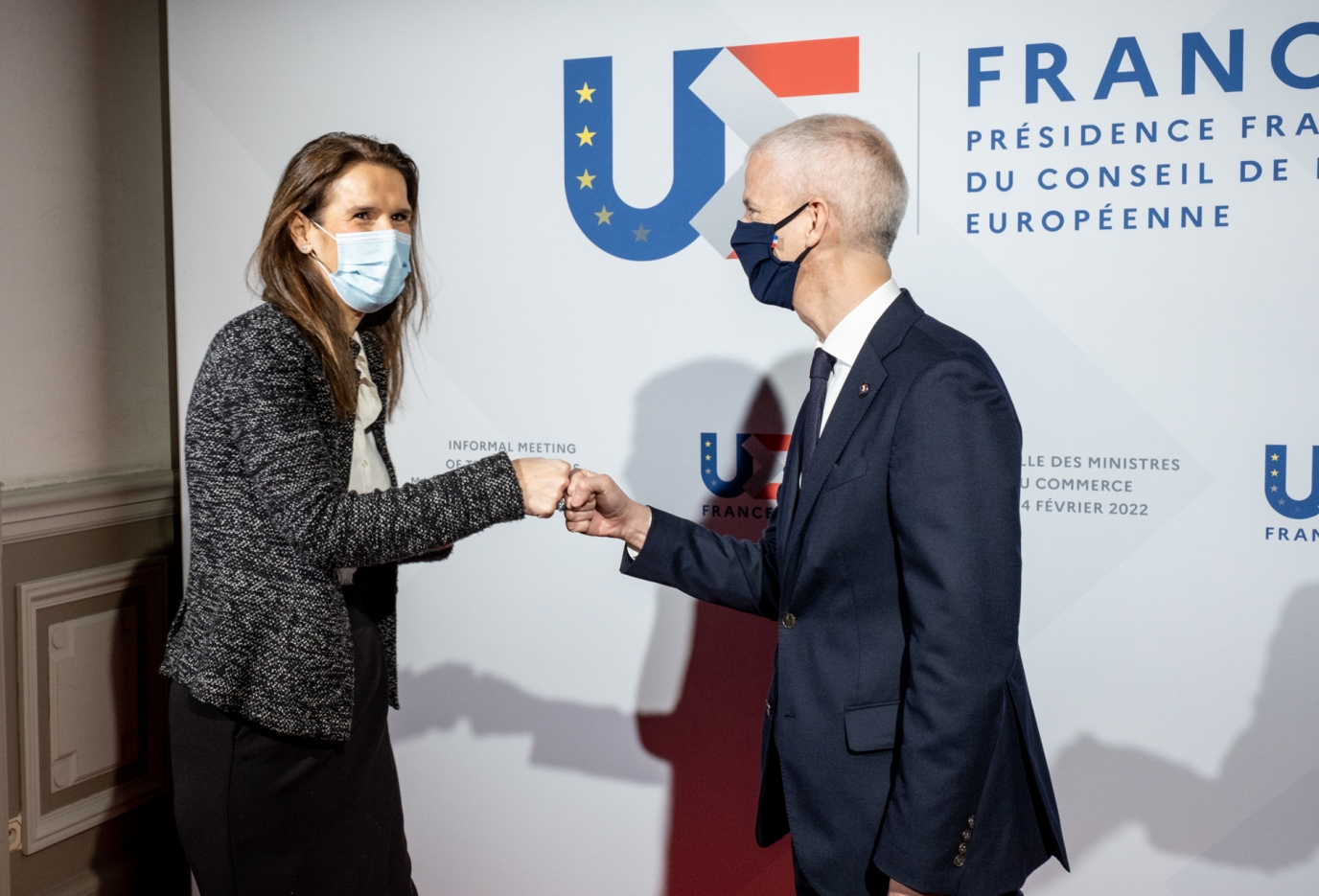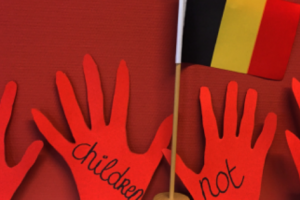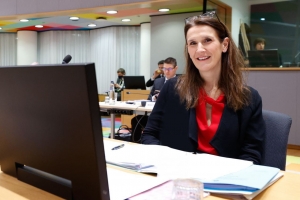Informal meeting of the Trade Ministers of the European Union: conclusions
At the invitation of the French Presidency, Deputy Prime Minister and Minister of Foreign Trade, Sophie Wilmès, participated in the Foreign Affairs Council (FAC) on Trade, which took place on Sunday 13 and Monday 14 February in Marseille, France.
WTO
An informal meeting was held in the presence of the Director-General of the World Trade Organization (WTO), Dr Ngozi Okonja-Iweala, which allowed the European ministers to assess the functioning of the organisation and also take stock of preparations for the 12th Ministerial Conference which was to be held last November but was postponed. Belgium believes that this ministerial process must take place as soon as possible, with a new dynamic and with a clear commitment from the key players. Our country would like the WTO to achieve results in the short term on the four priority issues, namely the reform of the organisation itself, the issue of trade and health, fisheries and, lastly, agriculture. Sophie Wilmès, "The world is watching us. It is high time we found a solution to the trade-related aspects of the global fight against the virus. In this respect, our country supports the efforts of the European Commission in Geneva around a holistic approach that also includes trade facilitation and increased vaccine production." "In addition to trade and health, the reform of the WTO is a priority for all of us, and especially for Belgium, which has an economy that is very open to the world." It is therefore imperative for our country - in terms of the pandemic also - that the WTO is able to perform its basic functions - negotiating, monitoring and settling disputes - to ensure that global trade is free, smooth and predictable.
EU-Africa
The European Foreign Trade Ministers also discussed the deepening of trade and investment relations with the African continent, ahead of an EU-AU summit on 17 and 18 February in Brussels, which will play a key role in this issue. For Belgium, establishing strategic cooperation with its African partners is a priority. There are still many areas of great potential for increased collaboration, including helping them implement the African Continental Free Trade Area (ACFTA). "Building a new alliance with Africa is essential because the continent has great potential to become a driver for jobs, investment and trade for our companies. The development of the continent will require additional efforts and investments, for example in the energy transition in which we have expertise to spare and which can offer opportunities at the economic and social levels, as well as in terms of infrastructure and transportation," said Sophie Wilmès.
Belgium also believes that the European Union does not communicate strongly enough about its actions in Africa. This is as true for its own citizens as it is for the citizens of African countries. "I am thinking, for example, of the health sector and vaccine production. The EU is the world's largest exporter. As such, it has provided one in two vaccines to the African continent, either through donations or through the COVAX mechanism," explains Sophie Wilmès. "We also need to better communicate the benefits of the partnership and development model we offer, which sets us apart from other world powers. These differences in model are also reflected in decisions such as the ban on importing products from deforestation, and legislation on corporate social responsibility, which offer real benefits from a societal point of view."
This was also an opportunity to discuss the economic partnership agreement with Kenya, which the European Commission intends to confirm its willingness to sign through a political declaration on the sidelines of the EU-AU summit. For Belgium, the presence of an ambitious, enforceable and binding chapter on trade and sustainable development is indispensable in this respect, as is an appropriate dispute settlement mechanism.
The Deputy Prime Minister also stressed the importance that our country attaches to the promotion of gender equality, including in trade policy. She encouraged the European Commission to invest further in this aspect. This can be done, for example, by ensuring that women benefit to the same extent as men from our business policy, and by promoting decent and equal working conditions.
Trade and Technology Council
Lastly, the Council discussed our relations with the United States, particularly in preparation for the future Trade and Technology Council (TTC). Belgium hopes that this transatlantic diplomatic forum for coordinating technology and trade policy between the EU and the United States will quickly produce concrete results. For Sophie Wilmès, "the Trade and Technology Council allows us to hold positive and concrete negotiations directly with our main trading partner. This constructive approach should reduce the risk of new trade conflicts that benefit no one. Our companies, and especially our SMEs, need stability and predictability." Belgium considers that the semiconductor industry must be a key theme, given the major interests in this field.



